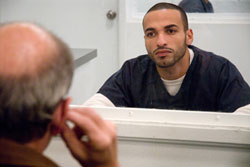You are involved in such a wide range of projects as an actor, director, and activist. Why did you decide to play a supporting role in this movie for kids?
It’s nice to be in a movie that is not talking down to kids. I’ve had years and years of frustration as a parent with all the lowest common denominator movies. This one has a great heart to it. It is a larger example of the idea of hope for a new generation. Intrinsically, the new generation knows things need to be changed and they can find a way to do it.
One of the things that is unusual about this story is that the children get no help from the grown-ups. In most movies with children as the main character at least one adult is there to give them some explanations and advice.
It has to be the new generation; if they listen to adults, they won’t do it.
You are an experienced director but here you were directed by Gil Kenan, a young man with only one small animated film to his credit before taking on this enormous project. What made you trust him?
I was excited to work with him. I am always interested first in the script — is it a story? What I liked about him was that he had a very clear vision of what he wanted and the selling point was his optimism and spirit.
Any number of directors could have made this bleak and dark and foreboding. He constantly found he light. His objective was a world of hope in the eyes of the children. It is easier to make a story where everybody dies in the end. People think that is artistic or cool. But he transcended all of that and found the universal in the idea that was at the end of “The Shawshank Redemption” — there is a place on the beach for all of us, and if we hold onto the light in each of us, we’ll be there.
In the film, you play the father of one of the main characters. It is a quiet, almost passive role. How did you see this man?
He had the potential to be an enigma. I asked to change some lines. He was supposed to say “you can’t.” I wanted to turn it into a question. He lived that life and tried what he tried, so he would not outwardly encourage his son but he would hope. You raise children to rise up to their better selves but you have to allow them to find it or achieve it. You can’t find it for them and give it to them or make them do it. I liked it that he did not try to provide an answer but gently led his son to the questions.


